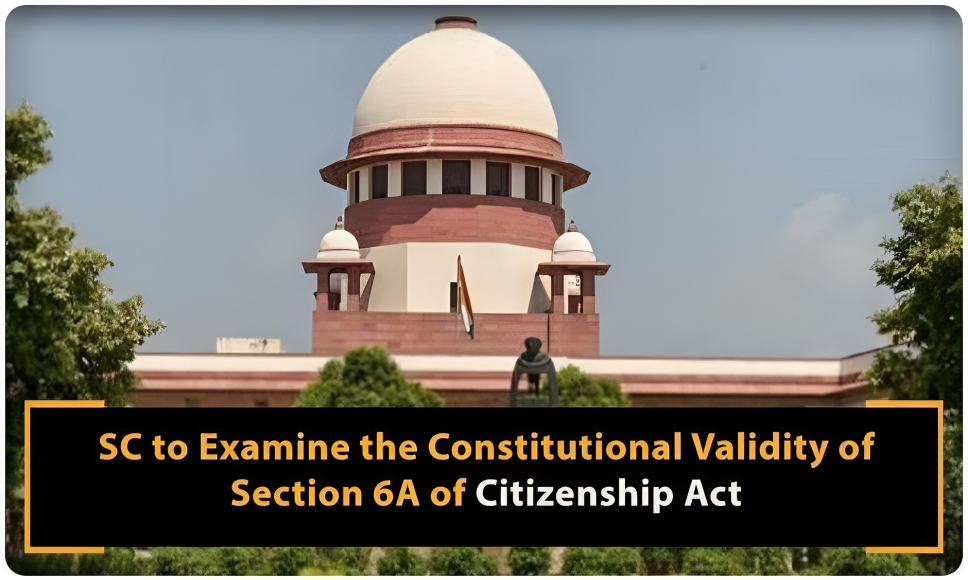





Copyright infringement not intended
Picture Courtesy: www.sentinelassam.com
Context: The Supreme Court of India has decided to hear a series of petitions challenging the constitutionality of Section 6A of the Citizenship Act, 1955, starting from October 17.
Key Highlights
The Supreme Court's decision on the matter will have implications for the legal and citizenship status of these individuals and the broader question of preserving cultural and linguistic identities in the region.
Must Read Articles:
INDIAN CITIZENSHIP: https://www.iasgyan.in/daily-current-affairs/indian-citizenship
CITIZENSHIP AMENDMENT ACT, 2019: https://www.iasgyan.in/daily-current-affairs/citizenship-amendment-act-2019-24#:~:text=The%20Citizenship%20Act%2C%20of%201955%20provides%20various%20ways%20in%20which,(OCIs)%20and%20their%20rights.
|
PRACTICE QUESTION Q. Consider the following statements: Statement 1: Section 6A of the Citizenship Act, 1955, was added to protect and preserve Assamese culture and identity. Statement 2: Under Section 6A, foreigners who entered Assam before January 1, 1966, do not have the right to vote. Which one of the following is correct in respect of the above statements? A) Both Statement-1 and Statement-2 are correct, and Statement-2 is the correct explanation for Statement-1. B) Both Statement-1 and Statement-2 are correct, and Statement-2 is not the correct explanation for Statement-1. C) Statement-1 is correct, but Statement-2 is incorrect. D) Statement-1 is incorrect, but Statement-2 is correct. Answer: A Explanation: Both statements are correct. Statement 1 correctly describes the purpose of Section 6A, and Statement 2 accurately explains one of the provisions of Section 6A, which restricts the voting rights of foreigners who entered Assam before January 1, 1966. |
https://epaper.thehindu.com/ccidist-ws/th/th_delhi/issues/52554/OPS/G3FBPBCPV.1+G5QBPC0DO.1.html





© 2025 iasgyan. All right reserved